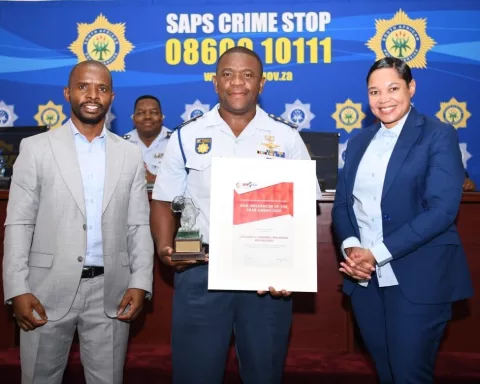Leadership is about creating a trustworthy, creative, and progressive environment. Effective leaders motivate their team members to become leaders themselves, resist micromanagement, and allow their team the necessary autonomy to excel. Gasant Abarder’s leadership journey emphasizes the importance of trust, empathy, and transparent communication in creating a positive work environment that promotes productivity and innovation. His experiences provide crucial insights into what it takes to motivate a team, stimulate creativity, and lead growth.
What is the essence of leadership?
The essence of leadership is cultivating a trustworthy, creative, and progressive environment. This involves constant learning, self-awareness, and personal development. The most effective leaders motivate their team members to become leaders themselves, resist the urge to micromanage, and allow their team the necessary autonomy to excel. Trust, empathy, and transparent communication are crucial in leadership.
Leadership entails a constant process of learning, self-awareness, and personal development. It is a multifaceted responsibility that demands equilibrium, compassion, and a thorough comprehension of individual variances. The most productive leaders are usually those who motivate their team members to step up as leaders themselves. They are the ones who resist the urge to micromanage, allowing their team the necessary autonomy to excel.
The Journey of Leadership
Gasant Abarder, a seasoned media professional, embarked on his leadership journey in his late twenties, picking up the subtleties of leadership along the way. He initially struggled with finding his unique leadership style as a deputy editor of a daily newspaper. Despite his initial emotional immaturity and an attempt to emulate the rigid style of his predecessor, he quickly understood the crucial need to adjust his approach to cater to the distinct needs and drives of each team member.
His role as the youngest editor of the Cape Argus significantly influenced his leadership philosophy. He sought to nurture a culture that prioritized trust, creativity, and balance. His ambition was to create a workplace free from the negativity of office politics which instead encouraged creativity. His focus was not on personal popularity, but on fostering a setting which nurtured productivity.
Leadership Through Trust and Creativity
Abarder’s strategy was to give his team the liberty to innovate, a tactic that demanded trust, patience, and a flexible viewpoint on work-life balance. He was not just about making directives but nurturing potential leaders from his team. His belief in the importance of fostering creativity wasn’t about getting recognition. Instead, it was about creating a workspace that promoted productivity and innovation.
In his pursuit of leadership perfection, Abarder learned valuable lessons from the failures of his superiors. He recognized the detrimental effects of micromanagement and the futile chase for perfection. Adopting a proactive approach, he made it a point to be present and available for his team, engaging in discussions, meeting deadlines and, crucially, fostering open communication.
Leadership Lessons from Missteps
Abarder’s philosophy on leadership was tested when he was snubbed by a superior for an entire day. This occurrence brought to light the critical importance of open, respectful interaction. The incident served as a lesson, inspiring him to ensure that no one in his team ever had to experience such neglect. He pledged to maintain transparency and encourage team members to express their thoughts freely.
In his present position, Abarder oversees a small media unit located away from the hustle and bustle of city life. He firmly believes in making the work-life of his team members more comfortable, whether that involves allowing flexible schedules or creating a vibrant, positive work atmosphere. This relaxed, yet dedicated approach has resulted in his team winning awards, producing innovative multimedia content, acquiring new skills, and innovating.
The Power of Empathy and Open Communication in Leadership
Abarder’s tale emphasizes the significance of empathy, trust, and transparent communication in leadership. By treating his team members as equal collaborators rather than subordinates, he nurtured a sense of unity and mutual respect. His leadership journey is still in progress, but his experiences provide crucial insights into what it takes to motivate a team, stimulate creativity and lead growth.
In a work environment where stress and pressure are commonplace, Abarder’s leadership style serves as an inspiring example of the potency of trust, empathy, and balance. His leadership journey underlines the fact that being a leader is not just about giving orders, but about cultivating potential leaders, fostering creativity, and maintaining trust and balance.
How do effective leaders motivate their team members?
Effective leaders motivate their team members by giving them the necessary autonomy to excel and by encouraging them to become leaders themselves. They resist micromanagement and instead prioritize trust, empathy, and transparent communication.
What is the importance of trust, empathy, and transparent communication in leadership?
Trust, empathy, and transparent communication are crucial in leadership as they create a positive work environment that promotes productivity and innovation. By treating team members as equal collaborators rather than subordinates, leaders nurture a sense of unity and mutual respect.
What can we learn from Gasant Abarder’s leadership journey?
Gasant Abarder’s leadership journey emphasizes the importance of trust, empathy, and transparent communication in creating a positive work environment that promotes productivity and innovation. His experiences provide crucial insights into what it takes to motivate a team, stimulate creativity, and lead growth.
What is Abarder’s strategy for fostering creativity in the workplace?
Abarder’s strategy for fostering creativity in the workplace is to give his team the liberty to innovate, a tactic that demands trust, patience, and a flexible viewpoint on work-life balance. He believes in creating a workspace that promotes productivity and innovation.
How does Abarder prioritize work-life balance in his leadership style?
Abarder prioritizes work-life balance in his leadership style by making the work-life of his team members more comfortable, whether that involves allowing flexible schedules or creating a vibrant, positive work atmosphere. This relaxed, yet dedicated approach has resulted in his team producing innovative multimedia content, acquiring new skills, and innovating.
What can we learn from Abarder’s missteps in his leadership journey?
Abarder’s missteps in his leadership journey taught him the detrimental effects of micromanagement and the futility of chasing perfection. He learned the critical importance of open, respectful interaction and pledged to maintain transparency and encourage team members to express their thoughts freely. His experiences serve as a lesson, inspiring leaders to prioritize trust, empathy, and transparent communication.












